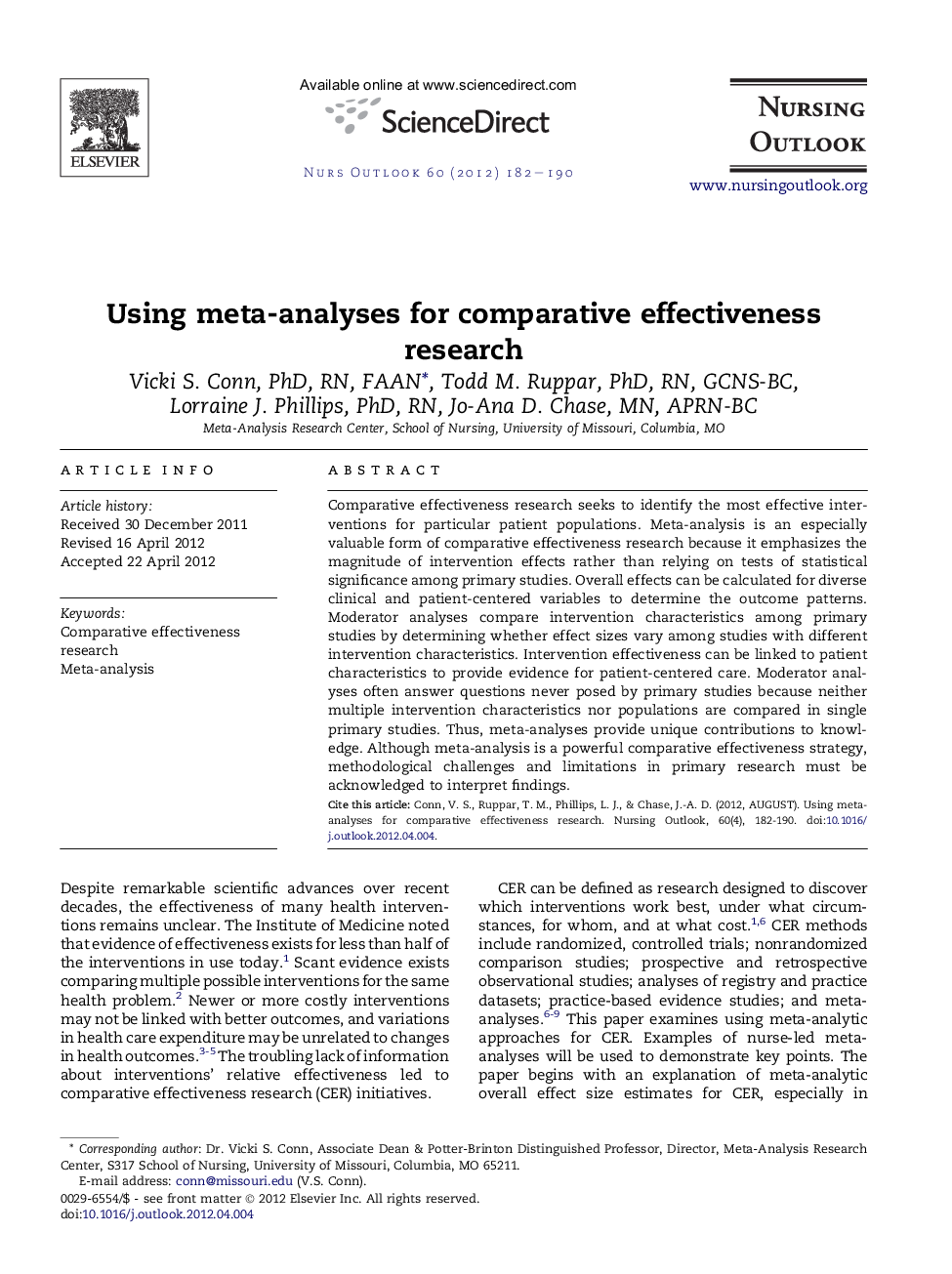| Article ID | Journal | Published Year | Pages | File Type |
|---|---|---|---|---|
| 2678380 | Nursing Outlook | 2012 | 9 Pages |
Comparative effectiveness research seeks to identify the most effective interventions for particular patient populations. Meta-analysis is an especially valuable form of comparative effectiveness research because it emphasizes the magnitude of intervention effects rather than relying on tests of statistical significance among primary studies. Overall effects can be calculated for diverse clinical and patient-centered variables to determine the outcome patterns. Moderator analyses compare intervention characteristics among primary studies by determining whether effect sizes vary among studies with different intervention characteristics. Intervention effectiveness can be linked to patient characteristics to provide evidence for patient-centered care. Moderator analyses often answer questions never posed by primary studies because neither multiple intervention characteristics nor populations are compared in single primary studies. Thus, meta-analyses provide unique contributions to knowledge. Although meta-analysis is a powerful comparative effectiveness strategy, methodological challenges and limitations in primary research must be acknowledged to interpret findings.
